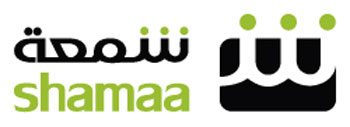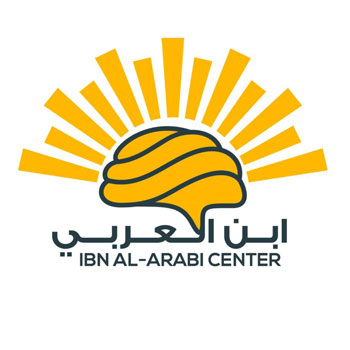دور التكوين البيداغوجي للأستاذ الباحث في تطوير الابتكار البيداغوجي بالتعليم العالي المغربي
معرّف الغرض الرقمي:
https://doi.org/10.56989/benkj.v4i7.1091الكلمات المفتاحية:
التكوين، البيداغوجيا، التعليم العالي، الأستاذ الباحث، الابتكار البيداغوجي، المهارات الرقمية، التقويمالملخص
تهدف هذه الدراسة إلى تحليل مؤشرات الابتكار البيداغوجي في وثيقة الرؤية الاستراتيجية للإصلاح 2015-2030 بالمغرب، وبيان دور التكوين في مجالات علوم التربية في تنمية حس الابتكار البيداغوجي لدى الأستاذ الباحث بالتعليم العالي المغربي، ورصد مدى اسهام اتقان اللغات في تنمية الابتكار البيداغوجي لدى الأستاذ الباحث، والكشف عن دور تكوين الأساتذة الباحثون في المهارات الرقمية، على تنمية حس الابتكار البيداغوجي بالتعليم العالي المغربي، ولتحقيق هذه الأهداف اتبعت الدراسـة المنهج الوصفي المسـحي، وتوصلت الدراسة إلى نتائج يمكن إجمالها في وجود علاقة ارتباطية بين التكوين البيداغوجي للأستاذ الباحث وتنمية الابتكار البيداغوجي بالتعليم العالي، كما كشفت النتائج التي خلصنا إليها أن هناك إرادة ورغبة لدى الأستاذة للتكوين في مجالات التكنولوجيا الرقمية، من أجل التمكن من توظيفها في التدريس والتقويم بالتعليم العالي، والحرص على توظيفها توظيفا ملائما يستجيب لحاجيات الطلبة وانتظاراتهم المعرفية والمهارية والسلوكية والوجدانية. كما أكد أغلب المشاركون في الدراسة على العلاقة الارتباطية بين الرقمنة والذكاء الاصطناعي واسهامها في تطوير الابتكار البيداغوجي بالتعليم العالي. وبينت النتائج المحصلة أن اتقان اللغات الأكثر استعمالا على الصعيد الدولي يسهم في استلهام التجارب البيداغوجية الناجحة والممارسات البيداغوجية المبتكرة، وفي تطوير الممارسات البيداغوجية المبتكرة لدى الأستاذ الباحث بالتعليم العالي بالمغرب.
This study aims to analyze the indicators of pedagogical innovation in the document of Strategic Vision for Reform 2015-2030 in Morocco, and to elucidate the role of training in educational sciences in fostering pedagogical innovation among researcher-teachers in Moroccan higher education. It also examines the contribution of language proficiency to the development of pedagogical innovation among researcher-teachers, and reveals the role of training of researcher-teachers in digital skills in fostering pedagogical innovation in Moroccan higher education. To achieve these objectives, the study employed a descriptive analysis methodology. The findings of the study revealed a significant correlation between pedagogical training of researcher-teachers and the development of pedagogical innovation in higher education. Moreover, the results indicated a willingness and desire among professors to receive training in digital technology fields in order to effectively employ them in teaching and evaluation in higher education, and to ensure their relevant application that meets the cognitive, skill-based, behavioral, and emotional needs and expectations of students. Additionally, most participants in the study affirmed the relationship between digitization and artificial intelligence, and their contribution to the development of pedagogical innovation in higher education. The findings also demonstrated that proficiency in widely-used international languages contributes to drawing inspiration from successful pedagogical experiences and innovative pedagogical practices, and to developing innovative pedagogical practices among researcher-teachers in Moroccan higher education.
المراجع
- السيورطي يزيد عيسى (2009): السلطوية في التربية المعاصرة، سلسلة عالم التربية، 362، الكويت
- العلام عبد الغفور( 2018): الرؤية الاستراتيجية للإصلاح 2015 – 2030 والابتكار البيداغوجي، ضمن أشغال ندوة: الابتكار التربوي وديناميات الإصلاح بالمغرب. 9 و 10اكثوبر 2028، منشورات المجلس الأعلى للتربية والتكوين والبحث العلمي.
- العنزي، مشعل بن سليمان العدواني(2021):الممارسات المهنية لإعداد وتنمية أعضاء هيئة التدريس في جامعة الإمام محمد بن سعود الإسلامية، مجلة العلوم الإنسانية. مج. 4، ع. 12، ص ص. 233-253 .
- شكري مصطفى 2018، التكوين في الرؤية الاستراتيجية: التقييم الرهان، الافاق، مجلة النداء التربوي، العدد 21-22، السنة.
- المجلس الأعلى للتربية والتكوين والبحث العلمي،الرؤية الاستراتيجية للإصلاح 2015-2030: من أجل مدرسة الإنصاف والجودة والارتقاء.
- علي سعيد إسماعيل( 1995): فلسفات تربوية معاصرة: سلسلة عالم المعرفة، الكويت، العدد 198
- وزارة التربية الوطنية والتعليم الأولي والرياضة، المركز الوطني للابتكار والتجريب التربوي، الإطار المرجعي للابتكار البيداغوجي.
- وزارة التربية الوطنية والتكوين المهني (2014): اللقاءات التشاورية حول المدرسة المغربية: الاختلالات والحلول، أبريل
-السليتي فراس مصطفى (2006): التفكير الناقد والإبداعي: إستراتيجية التعلم التعاوني في تدريس المطالعة والنصوص الأدبية، عالم الكتب الحديثة، عمان،
-Ait Dahmane Karima) 2021(: “Innovation pédagogique et besoins de formation des enseignants: enjeux et perspectives”, Multilinguales [Online], Numéro spécial | 2021, Online since 15 December 2021, connection on 08 May2024. URL: http://journals.openedition.org/multilinguales/7937 .
-Béchard Jean-Pierre, Pelletier Patrick (2004): Les universités traditionnelles: à l'heure des innovations pédagogiques? Dans Gestion /1 (Vol. 29)
-Bédard, D. et Béchard, J. P. (2009): Innover dans l'enseignement supérieur. Paris, France: Presses universitaires de France.
-Ben Elazmia, Allal, (2002): Stratégies D’apprentissage et Evaluation du Système D’enseignement (Cas de L’enseignement Secondaire Au Maroc), thèse du Doctorat d’état en Sciences de l’éducation, faculté des Sciences de l’éducation, Rabat.
-Berthiaume Denis et Nicole Rege Colet( 2013): La Pédagogie de l'enseignement Supérieur: Repères théoriques et applications pratiques, Peter Lang, Bern, Suisse
-Cros Françoise: ( 1997) L’innovation en éducation et en formation. Revue française de pédagogie, 118(1).
-Davidson ,Cathy, N (2017): The New Education: How to Revolutionize the University to Prepare Students for a World in Flux" by Basic Books.
-Ferste Bill (2014 ):Teaching Machines: Learning from the Intersection of Education and Technology" November 17, , Johns Hopkins University Press.
-Huberman –Michael (1973): Comment s’opèrent les changements en éducation: contribution à l’étude de l’innovation. Paris: UNESCO/BIE..
-Ibourk Aomar et Hamza Raid (2020): Mesurere pédagogique des enseignants marocains, International Social sciences et Manafement Journal, N°3, https://revues.imist.ma/index.php/ISSM/issue/view/1420.
-Talbot Laurent, Sébastien Chaliès ( 2019):La pédagogie universitaire,quelles perspectives, recherche, innovation, institution, Cépaduès-éditions. ,
- Tricot André (2017): L'innovation pédagogique. coll. «Mythes et réalités»,Paris.
-Seldon Anthony, Oladimeji Adiboye (2018):The Fourth Education Revolution: Will Artificial Intelligence Liberate or Infantilise Humanity University of Buckingham Press.
التنزيلات
منشور
كيفية الاقتباس
إصدار
القسم
الرخصة
الحقوق الفكرية (c) 2024 مجلة ابن خلدون للدراسات والأبحاث

هذا العمل مرخص بموجب Creative Commons Attribution-NonCommercial 4.0 International License.




























